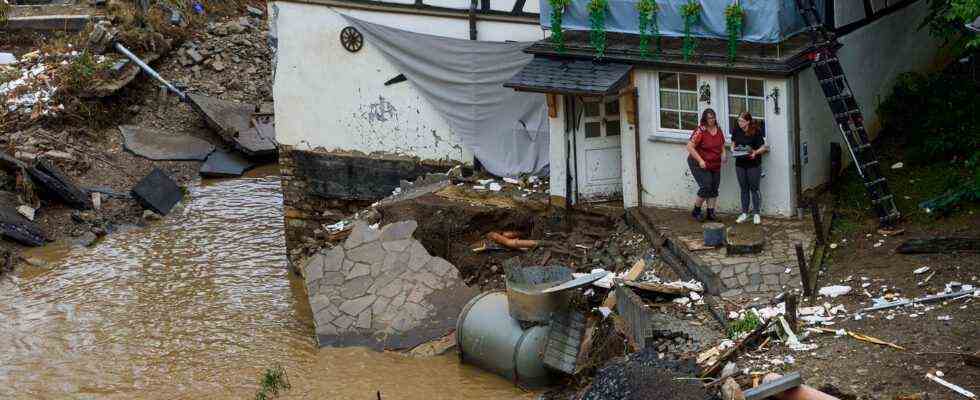Status: 07/16/2021 1:59 p.m.
The floods in North Rhine-Westphalia and Rhineland-Palatinate are likely to cost German insurers a lot of money. It will be one of the costliest natural disasters in the past 20 years.
The ongoing catastrophe in western Germany could be among the most expensive natural disasters in Germany in the past 20 years. The insurance industry is threatened with high burdens. “We will probably have a current damage estimate in the next week,” said the general manager of the German Insurance Association (GDV), Jörg Asmussen.
The actual damage is likely to be even higher, because only 45 percent of buildings in Germany are insured against floods and heavy rain by elementary insurance. “There are signs that this year with storms, floods, heavy rain and hail could develop into one of the most damaging since 2013,” said Asmussen. Heavy rain and hail had already caused an estimated insured loss of 1.7 billion euros in June.
Eight years ago, property and motor vehicle insurers had to pay 9.3 billion euros for natural disaster claims in Germany, according to GDV, followed by 2017 with a good three billion.
Allianz is holding back
The largest German primary insurance company Allianz has so far been reluctant to estimate the damage caused by the floods. “We don’t have any information that we can communicate about the current damage,” said Christian Weishuber from Allianz tagesschau.de. With the publication of the half-year figures at the beginning of August, one will probably comment on the damage caused by natural forces in the first half of the year. However, the company is unlikely to get around to statements about the current events.
And these are still very dynamic. The floods in Erftstadt occurred many hours after the devastating rains had ended. The masses of water were only on their way from the Eifel for a long time before they reached the city in the Rhein-Erft district.
Munich Re is waiting for direct insurers
The largest German reinsurer, Munich Re, expressed itself even more hesitantly than Allianz: “As a reinsurer, we are only in the second line. First we have to wait for the estimates of the primary insurers ”, said press spokeswoman Irmgard Joas. Reinsurers act as insurers for primary insurers. This allows large risks to be spread across several insurance companies.
The reluctance of Allianz and Munich Re is understandable. Because both companies are listed and thus bound by the strict ad hoc disclosure requirements of the stock exchange. The claims payments that can now be expected from the corporations should definitely have the potential to significantly influence the forecasts and the results of the insurance companies. This makes them so-called inside information. Use before it is published would be punishable by insider trading. However, the prices of the two industry giants have not developed particularly weakly so far.

